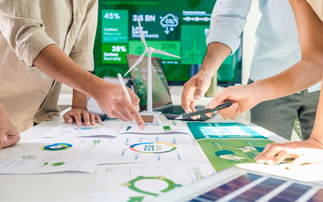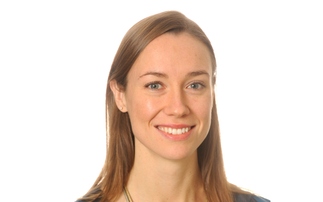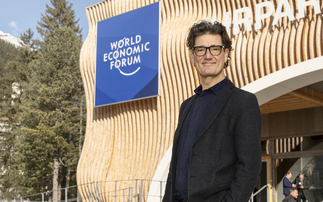From Ørsted to IKEA, here's what you can learn from the companies at the vanguard of action on SDG13
A key fear for executives trying to deal with climate risks is how much it will cost. But there is a growing number of companies that are proving tackling climate change need not harm returns.
Unilever's Sustainable Living Plan has now been in place for a decade, and in that time the company delivered consistent, industry-outperforming top and bottom-line growth as well as 300 per cent shareholder return - all while delivering against its sustainability goals, points out Phillip Smith, chief operating officer at consultancy Xynteo.
For some firms, the circular economy holds the answer for continuing the business while dramatically cutting environmental impact. As part of IKEA's ambition to become climate, forest, and water-positive, the furniture giant is moving from a products-led business model to a circular, services-led one with a steady income stream, explains Smith. "In IKEA's case, this means leasing furniture as well as selling it," he says. "IKEA will design all new products using circular design principles - meaning they will be intentionally designed to be re-purposed, repaired, reused, resold, and recycled."
Tetrapak, the packaging company, has also embraced a low-carbon circular economy approach "in which the entire value chain has minimal climate impact," says Mario Abreu, vice-president for sustainability. "A low-carbon circular economy takes into account the climate impact of raw materials and the manufacturing value chain. Unlike fossil sources, plant-based renewable raw materials can reduce carbon emissions as they grow and are reused and recycled. This means operations that are powered by renewable energy, manufacturing processes that are highly efficient and logistics that reduce fuel use."
In 2016, Tetrapak became the first food packaging company to have its climate impact reduction targets approved by the SBT initiative. It has committed to reducing direct greenhouse gas (GHG) emissions 42 per cent by 2030 and 58 per cent by 2040, from a 2015 baseline.
"By 2020, we pledge to reduce our absolute GHG emissions by 16 per cent per unit of revenue, from a 2010 base-year," Abreu says. "In this way, the SBTs address GHG emissions protocol across Tetra Pak's entire value chain - from direct emissions from its own operations from the combustion of fuels, through to indirect emissions in the value chain from sources not owned or controlled by the company, such as that of suppliers."
The key for companies that want to continue to thrive is to decouple their emissions from financial performance, Abreu insists. "In 2017, our value chain emissions were 13 per cent lower than in 2010, despite a 19 per cent increase in the number of packages sold," he points out.
Other companies - particularly those in high carbon industries - are pivoting their entire business to become more sustainable. One of the most prominent examples is Ørsted, the Danish energy company that in 2009 announced a dramatic flip of its model from being 85 per cent ‘black' (powered by coal, oil and gas) and 15 per cent green (powered by renewable sources) to the reverse ratio within a generation. By 2018, 75 per cent of Ørsted's energy output was green, and at the same time it was able to report record-breaking financial results, delivering $2.3bn in operating profit.
Ørsted has now gone even further, setting its sights on a target of 99 per cent green energy generation by 2025.
The firm has recently been named one of the 'Top 20 Business Transformations of the Last Decade' by the Harvard Business Review (HBR). "We saw the need to create a brand new company," Ørsted's CEO Henrik Poulsen told HBR. "It had to be a radical transformation, because we had to build a new core business and find new areas of sustainable growth. During the transition, we saw an opportunity to help fight climate change, and we became one of the first companies to make a wholehearted, fundamental decision to move from reliance on fossil fuels to green energy."
But if Ørsted embarked on a corporate transformation willingly, others are being forced by regulation to act. VW, in the wake of the 2015 'dieselgate scandal' and with tough EU rules on tailpipe emissions set to come into force in 2020, has committed to invest €30bn in electric mobility, with factories building electric vehicles in the US, Europe and China as part of its 2050 net zero target. By 2025, it plans to have released 70 ‘E-models' and to sell more than three million EVs a year.
Meanwhile, rival automaker Daimler has been upfront about the challenges of pivoting to a more sustainable model. The firm's incoming chairman, Ola Källenius, says: "We aim to have a carbon-neutral new passenger car fleet in 20 years. This transformation is a huge challenge - technologically and financially. How do we deal with this? One way would be to shy away and just try to safeguard the status quo. But that would not serve our purpose - and certainly not our future. So, we prefer doing what our founders have done: They became system architects of a new mobility without horses. Today, our task is individual mobility without emissions."
If the world is to meet SDG13, which demands "urgent action to tackle climate change", then companies in every sector must act. Those unprepared for the challenge may struggle, but if even an oil major can turn green in a decade, anything is possible.







